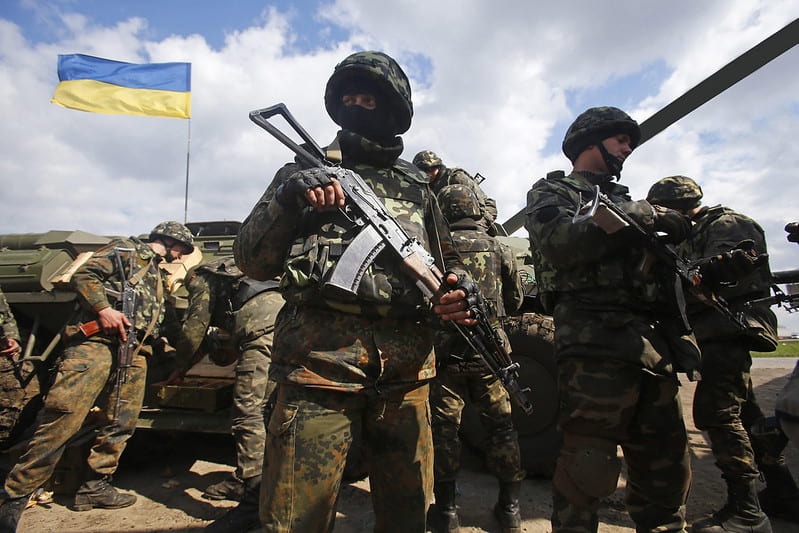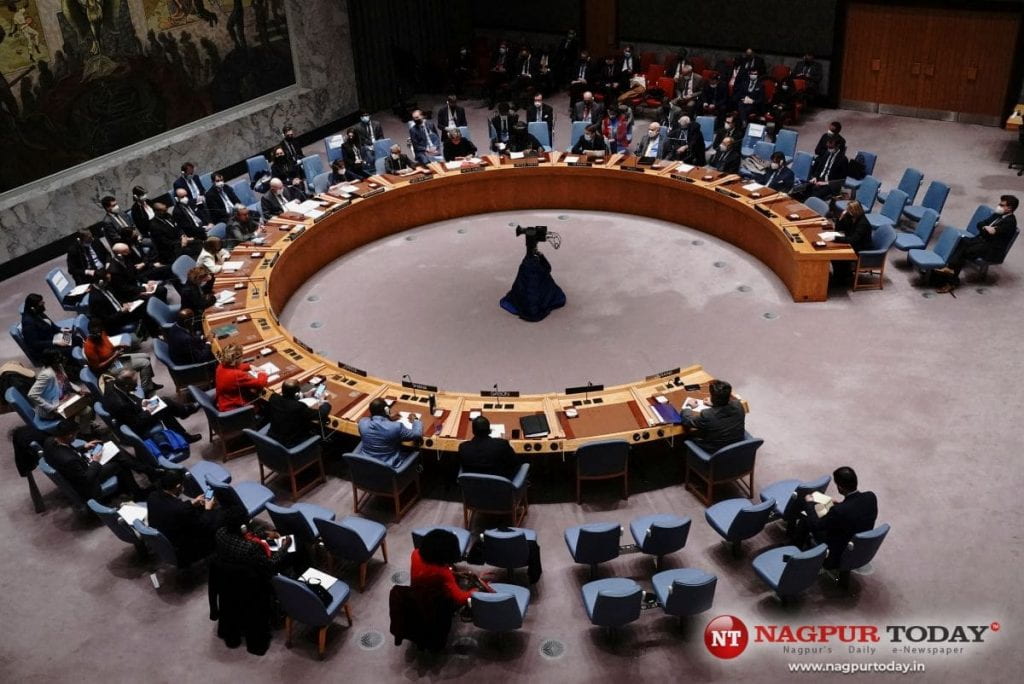After weeks and months of rising tension, Russia invaded Ukraine on February 24, 2022. Russian troops moved over the border into Ukraine and the Russian air force started attacking cities and strategic locations like military installations and airports. These attacks have happened all across the country, not only in some of the contested provinces in eastern Ukraine. These areas have experienced violence and fighting since 2014 after Russia annexed the Ukrainian territory of Crimea. World leaders have condemned Russian actions, with the U.S. and EU announcing additional sanctions on Russia and security-related, economic, and humanitarian support for Ukraine. NATO and the UN have held emergency sessions.

While this conflict seems far away for us here in Alabama, these developments are impactful, significant, and not to be underestimated for multiple reasons.
Impact on Geopolitics and the International Order
Most importantly, this is the first time since World War II that we are seeing what will likely shape up to be a full-blown international war in Europe. The Russian aggression against Ukraine puts the international order generated at the end of World War II at risk and shakes the very foundations of international relations. The invasion violates international law and denies principles and tenets established by the United Nations Charter, namely the concept of collective security, the maintenance of international peace through multilateralism and institutions, and the outlawing of the use of force in international relations. The war also threatens to destabilize Europe and undermines the order established after the end of the Cold War in the 1990s. This has the potential for severe and long-term consequences for Eastern European countries that were formerly under Soviet influence.
From a geopolitical point of view, the invasion highlights Russia’s expansionary tendencies and Russian President Vladimir Putin’s attempts to assert his power and restore regional dominance. Reinstating direct or indirect Russian control over Ukraine – a country that was formerly a part of the Soviet Union and before of the Russian Empire – has long been on Putin’s agenda. The collapse of the Soviet Union in the early 1990s and the following eastward expansion of NATO and the European Union to include countries that were formerly within the Soviet sphere of influence (e.g., Hungary, Poland, Slovakia, the Baltic States, and the Czech Republic) have humiliated Russia’s ambitions to be perceived as a major world power and undermined its influence in Eastern Europe. NATO announced in 2008 that it would consider membership of former Soviet Union states Ukraine and Georgia, which Putin considered a direct threat to Russia’s influence. When Ukraine’s pro-Russian president was overthrown in 2014 and a pro-European government was installed, Putin invaded and annexed Crimea and started to support pro-Russian separatist forces in the eastern Ukrainian provinces of Luhansk and Donetsk. Tensions have grown since then, culminating in the Kremlin calling the Ukraine “not a state”, designating it an artificial country, and Putin’s speech justifying the invasion by accusing the Ukrainian government of a genocide against the country’s Russian-speaking population. He has also issued warnings to NATO and the U.S. that interfering would lead to “consequences you have never seen”.

This has implications not just for the Ukraine, but also for other former provinces of the Soviet Union like Georgia and Kasakhstan. Further, it might set a precedent for other countries like China, which has long contested the independence of Taiwan and the validity of Taiwan’s statehood, or Serbia, which has disputed Kosovo’s recognition as a state. If the international community and Western power show a weak response, China might feel emboldened to take military action to annex Taiwan.
The Human Rights Perspective
From a human rights point of view, there are two particular points of concern I want to highlight. First, there is the potential of grave human cost. In the first hours of the invasion, 40 Ukrainian soldiers have already been killed and dozens more wounded. While Russia’s defense ministry promised not to attack cities or put civilians at risk, we all know that this is not how war works out or how Russia has fought its past wars (think Chechnya and Syria). Human rights violations, especially against women, children, and other vulnerable groups, tend to be widespread in armed conflict. A number of agencies have already called for a ceasefire to protect people in the Ukraine and to allow for humanitarian action, but so far we have yet to see any progress on this.
Second, there is the larger issue of authoritarian regimes expanding to the detriment of democracy and human rights. The “democratic recession” or the decline of democratic institutions and individual rights even in countries that were traditionally stable liberal democracies with high levels of freedom (including our own…) has been demonstrated by political scientists over the years (the term was coined by Larry Diamond, but see also here and here for other approaches). While scholars are debating the impact of democratic decline, Freedom House scores have consistently declined since 2005, showing democracy and human rights in crisis.

It seems that the foundations of international peace, democracy, and human rights are at risk. Russia’s open aggression shows that these foundations are crumbling or at least are perceived to be crumbling. Putin is not alone in his interpretation – other authoritarian leaders in China, Venezuela, and Iran, and even some heads of state of democratic countries like Poland and Hungary, have openly defeated traditional avenues of political interaction, trade, treaty making, and diplomacy in favor of hard power and force.
Where does this leave us? At this point, it is unclear how the war between Russia and the Ukraine will unfold, how long it will last, and what the exact human and economic costs will be. We also don’t know yet how the world will respond beyond strong condemnation and imposing sanctions. What we do know is that there is great volatility and potentially long-lasting consequences from this fall out. This is a dangerous situation that we need to observe carefully. It has major implications for geopolitics and will affect us here at home.
What can you do to support the people in the Ukraine?
- Support calls for a ceasefire and an end to all hostilities. Call your representatives to support efforts to end the conflict. Here is a good guide on how to do that.
- Donate money to Ukrainian organizations that oppose the Russian invasion and support Ukrainian people.
- Join a peace protest.
- Stay informed. Here are some trustworthy Ukrainian news outlets to follow:
- The Kyiv Independent for news – website, Twitter
- The New Voice of Ukraine for insights and op-eds – website
- Meduza for independent journalism – blog, Twitter
- Stand with Ukraine for more community focused information – Instagram
- If you are on Twitter, here are some people to follow
- Anton Troianovski , Moscow Bureau Chief, NYT
- Alexander S. Vindman , retired Lt. Col. U.S. Army
- Michael McFaul (Former U.S. Ambassador to Russia)
- Anne Applebaum (writer, Atlantic Monthly, focus on Eastern Europe
- Franz-Stephan Gady (International Institute for Strategic Studies, IISS, in London–short analyses of the evolving military situation)
- Steeven Seegel (Historian of Russia and Ukraine, UT Austin, actively bringing the community together)
- Learn more about the conflict, context, and potential implications. We will post the recording of our Panel The Ukraine Crisis: Implications for Geopolitics and Human Rights that took place on Thursday, March 3, at 4:00 pm CST soon.
